The Government Electronic Information Portal organized an online seminar with the topic " Macroeconomic stability and corporate bond market development"
On the afternoon of May 28, the Government Electronic Information Portal organized an online seminar with the theme "Stabilizing the macro economy and developing the corporate bond market" to discuss measures to continue stabilizing and helping the market operate within the legal framework, contributing to the economy.
In 2022 and the first months of 2023, we have basically achieved the set general goals: Maintaining macroeconomic stability, controlling inflation, promoting growth, ensuring major balances, ensuring social security, consolidating national defense, security, safety, public safety, enhancing foreign affairs and integration. In very difficult conditions, GDP in the first quarter still maintained its growth momentum. The results achieved are very valuable in the context of unprecedented difficulties and challenges at home and abroad in many years, and difficulties and challenges outweigh opportunities and advantages, with many issues unprecedented.
Under the leadership of the Party, the accompaniment and supervision of the National Assembly, with the participation of the entire political system, the support of the people and businesses, the directions and administrations of the Government and the Prime Minister are consistent, synchronous, drastic, timely, appropriate, substantial, steadfast in goals and principles but extremely flexible, closely following reality, developments in the country and the world, creating substantial, measurable changes in areas of public concern in recent times, creating initial changes in many outstanding issues that have lasted for many years; consolidating and strengthening social trust and market trust with specific and effective solutions, policies and actions to remove difficulties and obstacles for people and businesses.
Although the situation is still facing many difficulties, many policies and management solutions are having a positive impact. In April and May, the situation has improved, many areas have changed positively, such as newly registered FDI capital in May increased sharply, the Industrial Production Index (IIP) initially showed good signs in April... Reputable international organizations continue to assess and forecast positively about Vietnam's economic prospects in 2023 and the coming time.
The development of the corporate bond market has received much attention in recent times, because this market holds a huge source of capital for the economy. Every fluctuation, no matter how small, of the market has a significant impact on the economy and the sustainable development of this market is also a channel to mobilize capital from the people for the economy in addition to traditional channels, which is an important thing to do.
In the second half of 2022, the individual corporate bond market witnessed a widespread psychological "shock" when investors frequently saw many cases being handled by authorities. Declining confidence combined with liquidity of cash flow to repay bonds of many businesses facing difficulties has increased the risk of this market.
Guests attending the seminar (from left to right): Prof. Dr. Hoang Van Cuong, National Assembly delegate, Vice Rector of the National Economics University; Deputy Minister of Finance Nguyen Duc Chi; Deputy Minister of Planning and Investment Tran Quoc Phuong; Dr. Nguyen Si Dung, former Deputy Head of the National Assembly Office - Photo: VGP/Quang Thuong
To support the market and businesses to overcome the difficult period, the Government, the Prime Minister and management agencies have made many important decisions to stabilize the market, put the market into operation within the legal framework, contribute to the economy and importantly, arouse people's confidence in this market for sustainable development. Not only supporting businesses, but the more important goal is to maintain macroeconomic stability, promote growth in the context of great need for resources to recover after the pandemic. Although it has not developed as expected, the market has shown positive signs. The road ahead is still long, with many difficulties, obstacles and challenges to overcome, requiring us to make more efforts and be more determined in implementing "ice-breaking" measures for the market.
To gain more perspective on this issue, the Government Electronic Information Portal organized an online seminar with the topic " Macroeconomic stability and corporate bond market development ".
The panel discussion included the following guests:
1. Deputy Minister of Planning and Investment Tran Quoc Phuong
2. Deputy Minister of Finance Nguyen Duc Chi
3. Prof. Dr. Hoang Van Cuong, National Assembly delegate, Vice President of National Economics University
4. Associate Professor, Dr. Vu Minh Khuong, Lecturer at the Lee Kuan Yew School of Public Policy ( answering online from Singapore )
Dr. Nguyen Si Dung, former Deputy Head of the National Assembly Office, coordinated the content of the Discussion. The Discussion was live-streamed on the Government Portal and other platforms of the Government Portal.
There is every reason to trust the management to achieve the set goals.
Dr. Nguyen Si Dung: Currently, the world situation is changing rapidly, complicatedly, and unpredictably, with many unprecedented problems arising beyond forecast. Many challenges are posed to countries such as economic recession, rising inflation, energy insecurity, global food security, etc. How do external factors and the international environment affect our efforts to stabilize the macro-economy? How would you evaluate the economic achievements, especially the macro-economy, that we have achieved in recent times? Could you compare them with other countries in the region?

Deputy Minister of Planning and Investment Tran Quoc Phuong : Based on the actual situation, the domestic and world economic situation in 2022 and the first months of 2023 can be summarized as follows: More difficulties and challenges than advantages; rapid fluctuations; very unpredictable, hard to forecast, there are realities that exceed forecasts and the complexity of the world situation affects economies.
Our country's economy is still modest in scale while its openness is large (nearly 2 times that of GDP). Thus, the impact of external factors on our country's economy is very large. At the end of 2021 and 2022, we expect that after overcoming the COVID-19 pandemic, the economies will enter a period of strong recovery. However, the reality is not as predicted, there are even factors such as political, financial - monetary conflicts... that have slowed down the recovery process, even pushing the economy to the risk of recession.
Some factors in the world seriously affect the macro economy of countries, in which inflation is a major factor, originating from the US and Europe, spreading globally. Many countries have to launch solutions to cope with the increasing inflation situation, especially fiscal and monetary solutions. The Fed continuously increases interest rates at a large margin, the Central Banks of Europe and major economies have all moved to increase interest rates sharply to curb inflation. The above solutions make us face a decline in economic growth.
Despite the difficult context, the results of macroeconomic management and growth, ensuring major balances, and controlling inflation in our country's economy still achieved encouraging results. According to the comments of experts and State management agencies on macroeconomics, the most important thing we have achieved is maintaining macroeconomic stability, controlling inflation below the target assigned by the National Assembly, as well as ensuring major balances, and operating monetary and fiscal solutions at a reasonable level. For example, regarding exchange rates and interest rates, we have made adjustments but within appropriate amplitudes, without creating major shocks to the macro economy.
Besides, we still have to continue to face increasing pressure from the outside and must find ways to overcome it in the coming time, such as: World demand has decreased sharply; the manufacturing, processing and manufacturing sectors and some dynamic sectors have been severely affected; lack of orders, production reduction... These are the immediate difficulties we have to face from now until the end of the year.
Compared with other countries in the world and the region, through the statistics, our macro context is still quite positive. For example, after the end of the first quarter, our country's GDP growth rate reached 3.32%, while major partners and large economies with low growth rates such as the US reached 1.6%; EU reached 1.3%; Japan reached 1.3%; South Korea reached 0.8%. When growth is low, consumer demand in these economies also decreases, leading to the impact on our business orders and output products. In the first quarter of 2023, the growth of the processing and manufacturing sector decreased significantly.
But the growth rate of 3.32% compared to the World Bank and IMF forecast of more than 2% in 2023 shows that we are still at a quite positive level, creating a premise to strive in the last months of the year.
Besides, after 4 months, we achieved an inflation rate of under 4% as per the target set by the National Assembly. Other economies are at quite high levels such as: Singapore (5.5%); Indonesia (about 5%), EU (about 7%); US (about 5%). These are our partner economies and they are all struggling with rising inflation. With such analysis, we have every reason to believe in our policies and management from last year as well as the beginning of this year to achieve the set target.
Vietnamese Dong is the best currency
Dr. Nguyen Si Dung: Regarding this issue, we would like to hear the opinion of Dr. Vu Minh Khuong from Singapore!
Dr. Vu Minh Khuong, Lecturer at the Lee Kuan Yew School of Public Policy: The world expected to overcome the pandemic but did not expect it to penetrate deeply into the health of the economy, some things that do not happen overnight. Meanwhile, the context of the Russia-Ukraine war has caused the international situation to be unstable, inflation is high, interest rates are at an unprecedented high, countries are struggling. In that context, we need to sympathize with the Government, localities, and businesses that are struggling fiercely. But the good news is that Vietnam is showing good courage. From the outside, Vietnam looks like a rocking ship but has a steady steering, improved credit rating, good budget revenue and expenditure, and tight control of inflation compared to many countries.
The world growth is a bright spot, although the IMF forecasts Vietnam to grow 5.8% this year, the prediction for next year is quite high. They still have high expectations for Vietnam's future. Foreign investors are still eager to enter Vietnam, expecting Vietnam to participate in the new value chain.
Looking outward, like Vietnam, Singapore has a trade ratio several times higher than GDP. In the first quarter, Singapore's GDP increased by 0.1%. The US growth rate, when adjusted recently, was down to 1.1%, which means there are still difficulties before returning to favorable conditions.
What I want to emphasize is that the difficulties clearly create a psychological inhibition for businesses. Looking at the truth, it is not due to the Government's management, but the economic model that is beginning to show great pressure to change.
For example, shrimp and seafood exports have decreased, international competition has increased. I go to countries to give lectures or talk about Vietnam's experience first. Bangladesh and India export 7 billion USD, want to increase to 15 billion USD, so they grasp digital transformation and green transformation very quickly. Meanwhile, we are still only improving the business environment, there is no fundamental breakthrough. This is something we must pay attention to, it is time to fundamentally reconsider improving the growth model in the future.
Fortunately, localities have grown rapidly and have great ambitions to contribute to realizing the goal of a prosperous Vietnam by 2045. Local leaders such as Ho Chi Minh City and Hai Phong are very attentive and want to learn from the experiences of other countries to apply to the country's development.
We are entering a new phase of growth, requiring new breakthroughs in thinking as well as awareness of building a modern nation in the next 2-3 decades.

Dr. Nguyen Si Dung : Dr. Vu Minh Khuong has specifically analyzed the solutions and achievements that have contributed significantly to resolving this psychological factor. Dr. Khuong, how do you perceive and evaluate Vietnam's efforts and response measures to stabilize the macro-economy?
Dr. Vu Minh Khuong : Vietnam's response is very sensitive. I especially appreciate the efforts of the State Bank, the Ministry of Finance, and the Ministry of Planning and Investment to help international investors feel secure.
They said that Vietnam's response capacity is quite good, the Vietnamese Dong is the best currency, other currencies have all depreciated. Of course, currency stability can cause difficulties for export enterprises, but fortunately, the current account surplus is good, FDI attraction is good, export activities are quite good... On the macro side, it is good, promoting public investment, highway constructions, projects have been implemented by the Government vigorously, when difficulties arise, they are resolved immediately.
Regarding the electricity issue, we need strong support from the state-owned enterprise sector. This sector has not yet had satisfactory solutions, it needs to be resolved immediately, focusing all efforts on solving it. For example, the renewable energy issue, although not yet standard, is in the right direction, it needs to be resolved, not to let the situation of power shortage...
The overall picture of the general response is correct and good, but the ecosystem response to the challenge is beyond the capacity of a specific ministry, branch or the Government, but requires the entire political system, including businesses, to discuss and solve the big problem.
Singapore's experience is that we need to have a council to shape the strategy for the future, clearly define responsibilities, and closely coordinate to create momentum for progress and build trust in society. There are many issues to discuss, but what is being done is commendable and on the right track.
Maintaining macroeconomic stability is the greatest success.
Dr. Nguyen Si Dung: Dr. Vu Minh Khuong has positively evaluated the solutions that have helped us stabilize the macro economy and still promote growth. Dr. Vu Minh Khuong has concerns about the electricity issue. I think recently the Government has made very timely decisions to remove obstacles for solar power, wind power, etc.
With the same question, I would like to ask Dr. Hoang Van Cuong, how do you evaluate the solutions to stabilize the macro economy to ensure our growth in recent times?
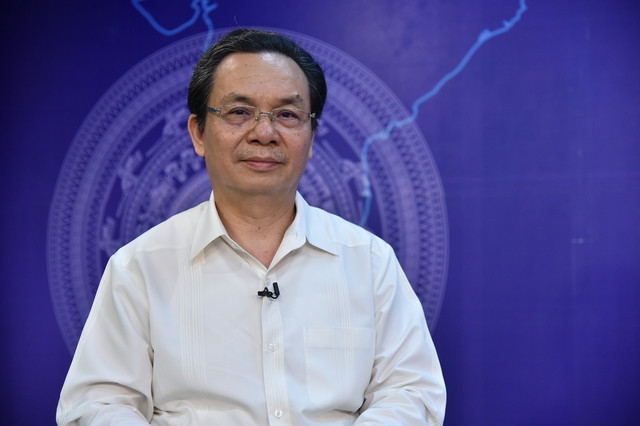
Prof. Dr. Hoang Van Cuong: I strongly agree with the assessment of Deputy Minister Tran Quoc Phuong on the macroeconomic situation as well as the opinion of Dr. Vu Minh Khuong. Indeed, we see that in the context of the world having turbulent waves such as inflation and growth decline, Vietnam maintaining macroeconomic stability is the greatest success for us to create stability in many aspects, including people's lives, business production activities of enterprises and we do not have to pay the price for restoring balance. To be successful, there are many solutions that the Government has implemented, but I think from 3 perspectives:
Firstly, macroeconomic stability has been very successful. I think that the Government's fiscal policy management has responded very promptly, appropriately and effectively. We see that, in the context of the epidemic, many countries also use fiscal policy to support businesses and people, but the consequence after the epidemic is inflation. But Vietnam still supports businesses and people, also uses fiscal policy but does not fall into inflation, still reduces the burden on businesses, such as reducing taxes, extending and postponing contributions. Even with the people, there are places where we directly support with money, there are places where we support with material means. Or we also see problems related to revenue and expenditure policy management. In such a difficult context, of course, revenue tends to decrease, especially when we exempt, extend and postpone revenues. But in fact, in the past two years, 2021 and 2022, revenue has far exceeded forecasts, reflecting that we have taken advantage of opportunities to exploit revenue sources to compensate for the delay, postponement, and late payment of enterprises. It is from doing well in revenue sources that our balance of payments is always lower than the deficit level assigned by the Government. Therefore, public debt has decreased very low, previously there was a period of over 50%, if calculated according to the new GDP, in 2021 it was down to 42% and in 2022 it was only over 38%. This is a very good space for us to continue using these fiscal policies. That is a success and shows that we are very skillful and effective in using fiscal resources.
Regarding currency, as Dr. Vu Minh Khuong said, we are the country that maintains the most stable and best currency price. Our exchange rate is not rigid, there are adjustments and changes flexibly, but it only fluctuates around the 23.5-24.5 range and eventually returns to the correct stable exchange rate, thereby creating a stable currency value, helping businesses feel secure in production and business, without fear of currency devaluation, causing panic, hoarding... I think those are the factors that demonstrate our success, the whole world has such high inflation, we can maintain it, especially our open economy, when the prices of other countries' currencies increase, our currency is at high risk of devaluation. Recently, in 2022 and recent months, while the world forecasts a slowing inflation trend, major banks in many countries have hardly made any moves to reduce operating interest rates, but the State Bank of Vietnam has reduced operating interest rates three times, aiming to bring down the interest rate level, helping businesses have resources. This is a drastic action in the current context and also resolute. We have heard, for the third time, the Governor's directive: If commercial banks do not reduce, they can consider credit room later... Of course, we must be very cautious in the context of many difficulties in the world.
Third, regarding the management work, I think that the management work between the Government and the National Assembly has a very clear interaction and support, almost like the policies that are born always have a quick support and interaction. What is needed for life, we have a legal framework to implement, and when it is in place, the Government's actions are very decisive in difficult contexts. Over the past year, there have been many directives from the Government to resolve bottlenecks, even the Government leaders have made many inspections to the locality. Many meetings that I found very good were to assign deadlines to complete the work, making it very clear to the locality that by this time it must be completed. I think that when quantitative requirements are set, the deadline also shows the Government's determination and decisiveness very well.
Dr. Nguyen Si Dung: The assessments of Dr. Hoang Van Cuong show that the recent solutions are very correct and positive. But there are still many difficulties in the future. He said a very important idea is that the National Assembly's cooperation with the Government is a very important foundation, because without the cooperation of the approval agency, it will be difficult. In your opinion, what is the next solution that we must pay close attention to and promote?
Prof. Dr. Hoang Van Cuong : It is true that we are still facing a world context with many unpredictable changes. It is predicted that world inflation will tend to decrease, but we do not know if it has really ended. In particular, we have recently seen a series of banks falling into crisis, some even going bankrupt and having to be sold. This is a concern that will affect the financial system. If this event occurs, it will create a systemic spread, and the risk of warning of a world economic recession, even falling into crisis, is not unfounded. Moreover, the context of the geopolitical crisis is not yet clear, creating disruptions and conflicts in the world economy. The world context is extremely uncertain and has many risks. So how can domestic policies respond?
Regarding monetary policy, we are very determined. I think we are one of the pioneering banks in operating to reduce interest rates early to help businesses with resources. But we also need to be very careful because if the world situation gets worse, we also need to have the capacity to cope. Recently, there was an incident at SCB bank, but we handled it very promptly. We must always be in that situation. Therefore, regarding monetary policy, I think we must continue to use a flexible monetary mechanism but must be cautious and must control cash flow. If in the current context, many businesses are in difficulty and have needs but we cannot control cash flow, so that cash flow does not flow to the right places where it is needed to produce and do business to create wealth to bring to the market, liquidity immediately, but falls into frozen areas, lacking money, and having debts, it is almost like throwing money into a black hole, throwing salt into the sea, sometimes only wasting financial resources.
Regarding fiscal matters, we have quite a good room to implement fiscal policy. I appreciate that recently, the Government has continued to implement supportive fiscal policies, such as immediately deciding to defer contributions, taxes, rents, etc. and recently proposed to the National Assembly to further reduce VAT by 2%. I think these are very timely measures. VAT is even currently proposed to be reduced until December 31. December 31 is the time when we have to finalize the budget balance, but according to policy, I think it should be open. By December 31, if the situation becomes complicated and there are still difficulties, the Government continues to propose the National Assembly Standing Committee to approve it, then we can extend it immediately, without having to wait until the May session. I think that we must proactively implement support policies, and some fiscal policies can even provide stronger support. We see that currently, the bank is reducing interest rates using monetary management tools, but I think that using fiscal policy in combination with monetary policy by supporting interest rates is very effective. If we can increase the interest rate support, we will also direct the capital flow to the right subjects in need of support, thus increasing opportunities for many businesses.
In addition, other policies, as Dr. Vu Minh Khuong said, are that export enterprises are currently facing difficulties, so it is possible to manage the exchange rate policy on one hand, but also the corporate income tax for this group. Or there is a trend of enterprises laying off workers because of few orders and high costs for workers, we must consider social support policies or policies to postpone social insurance contribution obligations to reduce the burden. In terms of finance, I think it is also a very important factor.
The last point I really agree with Dr. Vu Minh Khuong is that we must change our thinking and actions, especially appreciate the actions of some local leaders. Perhaps in the current context, the key lies there. That is, we must remove institutional bottlenecks to free up resources. In the context of the world not yet recovering, the world market is still absorbing weakly, we must free up resources to increase domestic capacity in the country. Currently, I think these bottlenecks are happening quite commonly, so the situation of public investment disbursement is not fast despite our strong promotion; or the Resolution 43 package on economic recovery capital has not been disbursed much up to this point, still stuck in policy mechanisms. I think that we need to remove institutional and policy bottlenecks to free up resources to increase internal strength.
Vietnam is a country with vision for the future development of the world.
Dr. Nguyen Si Dung: Prof. Dr. Hoang Van Cuong has clearly stated the solutions now for us to continue promoting, including monetary policy, fiscal policy, and supporting businesses, removing institutional obstacles and bottlenecks. I would like to hear Dr. Vu Minh Khuong's opinion!

Dr. Vu Minh Khuong : Professor Hoang Van Cuong presented very comprehensively and deeply. I want to emphasize 3 points.
When talking about preparing for external shocks, a developed economy like ours also needs to prepare for internal shocks. We may have shocks, local crises somewhere, this business, that bank, so we must be ready, not just outside. That is a problem that the world must also clearly orient, which is to create buffers to absorb what may happen. For example, how to deal with defaulted bonds? In other words, if someone is going to go to the emergency room, how to treat them? We need to localize all the problems that do not affect people's psychology. Those who do well will continue to move forward, and those who fall will be treated immediately by ambulance. That is situational preparation.
The second, more important, more fundamental thing is that our foundation is quite solid. This is our advantage. Foreigners looking at Vietnam see a very strong political foundation, the people's mentality is steadfast and optimistic, the political system is good. The government operates methodically and decisively. That is very encouraging. How can we maintain solidarity and cohesion among the people so that everything is truly of one mind, leading the country to stability. The National Assembly is in session and should send out messages like that to demonstrate the very high consistency in our political system, leading the country to prosperity. We only have 25 more years, very short.
The third point I think is the most important and also the most challenging point. That is, we must realize that the world has changed, there are things that are not only unusual, but unimaginable that can happen, will happen. Besides, there are tremendous changing trends, like ChatGPT. I teach students to also fundamentally innovate, that is, now the requirement for ChatGPT to do how, you have to do better to get a high score. That is, artificial intelligence is developing very quickly. Or the green economy. For example, the Philippines has identified 178 GW offshore, now how to attract investment, produce halogen or electricity. We have a large area in the East Sea to both protect sovereignty and produce. We need to survey how much energy and resources to attract foreign investment. Like Singapore, for example, attracting investment in data centers without green energy, they will not agree to invest. Where to get it is also a problem. But Vietnam has such conditions, so our green energy must be better. I feel that many parts of our ecosystem are not yet sensitive to the green economy very well. This is catching up with the trend.
I think our international cooperation is excellent. Prime Minister Pham Minh Chinh's trip to attend the recent G7 Summit in Japan was highly appreciated. Foreign countries looked at it, our country attended and made very accurate statements, touching people's hearts. Thus, our international cooperation is not simply an economic issue anymore, but clearly also participating in the world's stability system as a very responsible and visionary member. Vietnam is a visionary country in the future development orientation of the world, how to promote peace, friendship and prosperity.
I want to emphasize and return to the economic model that Mr. Cuong also agreed with me: It is clear that the model must be renewed, from cheap labor to high-quality labor is a problem that all localities must think about. Currently, "we have cheap labor, cheap land, just come here" is not acceptable. It must be high-quality labor.
Second, we think that removing difficulties in the business environment, that is, reducing harassment of businesses, is good enough. Not true! Now we have to build the foundation of a modern economy. We have to quickly overcome the phase of reducing hassles, and from reducing hassles, we have to turn into an elite army to support businesses to move forward. How can the Ministry of Planning and Investment, or the Ministry of Finance send an elite army to the localities, and whichever locality wants to make a breakthrough, we will support immediately. I see that your cadres are excellent and dedicated, the Ministers and Deputy Ministers are also great. But we need to find a way to create motivation. We have the capacity but do not have a good motivation system to do our best. Mr. Park Hang-seo told me that his secret to bringing success to the Vietnamese football team is to create resonance. Vietnam has not yet created total strength.
The third point in capturing the trend is that we must shift from passively attracting investment to actively engaging with the world's large enterprises to prepare for the future, like Singapore's experience. We need to learn what their future strategy is like, how Vietnam is positioned to help them move forward. In the coming time, we will proactively not wait for the eagles to come but really stand side by side with the eagles to solve many problems. This is a problem that I think we must have a huge movement in the coming time, must really turn resources into strategic strength. Having resources but pouring them into the wrong things will easily lead to the middle-income trap, which means turning advantages into difficulties. The middle-income trap is actually simply that there are advantages but not knowing how to use them to turn them into great achievements, making them difficult for businesses. These are the things that we pay close attention to in increasing the responsiveness of Vietnam's economic ecosystem in the coming time.
Dr. Nguyen Si Dung : The issue that everyone sees as important is inflation. In recent times, Vietnam has controlled inflation very well. But if inflation is allowed to arise, the cost of stabilizing inflation will be very difficult, time-consuming and laborious. Controlling inflation is very important, so in the coming time, what direction should we take to maintain macroeconomic stability, especially controlling inflation? I would like to invite Deputy Minister of Finance Nguyen Duc Chi.
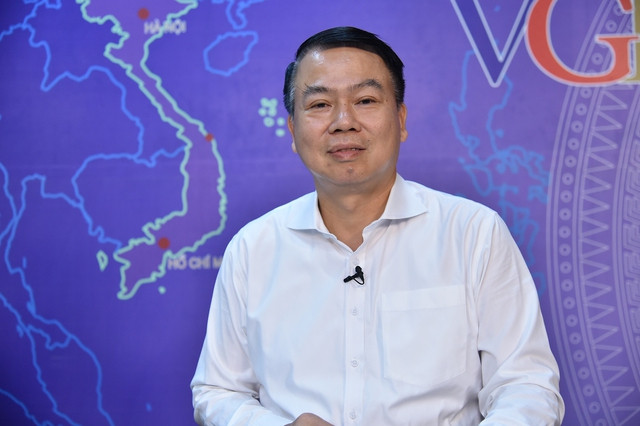
Deputy Minister of Finance Nguyen Duc Chi : Regarding the issue of stabilizing macro balances and the results achieved in recent times, I personally completely agree with the assessments, analyses and comments of Dr. Vu Minh Khuong, Dr. Hoang Van Cuong, and Deputy Minister Tran Quoc Phuong.
I would like to emphasize another aspect that plays a very important role in helping the country, the economy, and the government achieve recent results in macroeconomic management. That is the coordination of policies in macroeconomic management, especially the smooth combination of fiscal policy and monetary policy. It can be seen that when we need to control inflation, we must implement many solutions related to monetary policy to keep inflation at or below the target level.
To promote support for the economy, we must address it with expansionary fiscal policies like the policies that Mr. Cuong mentioned. That is, tax deferral, tax reduction, land rent reduction, many taxes... for businesses, for people. Then we increase and expand public investment, investment in infrastructure, highway systems and other infrastructure. Besides, we also need to address pandemic issues. How these two policies can still achieve their goals, I think the achievements of the Government in the recent past are excellent. From the perspective of the Ministry of Finance as an advisory body to the Government, the National Assembly and the Party on fiscal policy, I assess that fiscal policy in recent years has been the fulcrum and support for us to carry out other macro tasks. Mr. Cuong also said that we still have room, and we are continuing to use it.
Update on the fiscal situation, the results of 2021-2022 have been publicly announced. In 2022, the state budget revenue still reached the estimate, although it decreased compared to the same period, but the decrease was not much. We are still continuing to report to the Government and implementing solutions to ensure correct and sufficient collection and achieve the goals of fiscal policy. National financial security, public debt, as Mr. Cuong just reflected, we even reduced the level of public debt. This is a very bright spot and we must always be aware of the coordination between different macroeconomic policies, especially fiscal policy and monetary policy.
With the goal of controlling inflation that Mr. Dung just mentioned, to achieve that, I think these two policies need to be linked together. If we make the fiscal deficit, the State must continue to borrow more from the market, then interest rates may increase. If interest rates increase, government bond interest rates must increase, which will affect the entire interest rate system, because government interest rates are the base interest rates. Therefore, based on recent experience and results, we need to pay close attention to harmonizing policies. When we harmonize policies, we will achieve the desired results, including controlling inflation.
Dr. Nguyen Si Dung : Thank you, Deputy Minister Nguyen Duc Chi! Obviously, harmonizing policies is also a solution to stabilize the macro economy in general and control inflation. I would like to hear Deputy Minister Tran Quoc Phuong's opinion on inflation and its impact on economic development!
Deputy Minister of Planning and Investment Tran Quoc Phuong : Regarding the importance of inflation, we can easily see it, both in theory and in practice. I will not talk about theory, it is clearly stated in the subjects of economics and macroeconomics. Reporting to Mr. Cuong, we have taught it a lot in school. But in practice, I would like to emphasize two points.
In the past, we have also witnessed times when we had to suffer the consequences of high inflation such as the 80s and 90s of the last century or the period 2008-2011 with the impact of the world economic crisis. With the impact of inflation like that, as the problem has been raised, it will take us a lot of time and resources to overcome its consequences, as well as return to a state of good economic development. The consequences are very serious, growth is reduced, even recession, until people's lives are greatly affected, then unemployment, poverty, including the destruction of environmental resources. All of those consequences we can analyze are caused by inflation.
The second practice I also want to emphasize is that as we know, society is very concerned about the issue of inflation. People have also understood that inflation hits their family's rice pot, hits their wallet. Therefore, they are very concerned about the issue of how to control inflation, because once inflation increases, life is disrupted, spending and expenses increase a lot and will affect life. That is why the importance of controlling inflation is increasingly placed at a higher level of focus.
Another point I would like to add is that our inflation control results in recent times are very remarkable, especially in the price control policy, etc. However, there is still public opinion that with such good results, is it due to our data story? From the functional perspective of the Ministry of Planning and Investment and the General Statistics Office as the agency that synthesizes and publishes inflation data, we would like to once again affirm that the calculated and published data on the inflation index of Vietnam is completely reliable and internationally recognized.
Dr. Nguyen Si Dung: When inflation is brought down to a low level, within the scope allowed by the National Assembly, in direction and administration, the Government and the Prime Minister will give more priority to the growth target. How does Mr. Hoang Van Cuong evaluate this?

Prof. Dr. Hoang Van Cuong: It is true that our inflation control in recent times has been good. But there is an issue that needs attention because controlling inflation must go hand in hand with limiting resources pumped into the market, such as currency. If we are too concerned about inflation, continue to tighten the currency, and limit capital supply for businesses, businesses will not have resources to produce and do business. In the world, inflationary pressure has decreased, but the trend of major central banks is slowing down the increase of operating interest rates. Obviously, the world inflationary pressure on Vietnam is less, but the recessionary pressure is higher, more worrying. If we do not act early, wait until the recession and then pump money into the rescue, it will be difficult to recover. If the "body" is too weak, adding supplements will not restore it.
Currently, the success in controlling inflation is good, but the reality is that the world market has shrunk after 2 years of the pandemic, goods are difficult to sell, there are no orders, so businesses are facing difficulties. I just read information in the newspaper about a survey of 10,000 businesses, the rate of businesses facing difficulties and having to cut labor is over 80%, about more than 20% have to cut in half, more than 50% are in dire need of capital support. Obviously, the market is difficult, capital is stagnant if goods cannot be sold.
In the future, the world may have two trends: One is recession and crisis; the other is the beginning of signs of recovery. If we wait for recovery before production, we are "slow". So we must calculate in advance the "lessons" to cope. Therefore, this is the period when we must increase resources for businesses. The current capital source for businesses depends on two sources: the bond market and the rather traditional market, which is the capital system from credit banks.
We are considering balancing inflation control policies (monetary easing), shifting capital support to production and business enterprises, to create growth and jobs. Our goal is not growth to create wealth, jobs, people's income, and improve their lives. Businesses operating stably again will help maintain macroeconomic balance. I think the Government's shift in this period must focus on growth, not like last year on stabilizing the macro economy and controlling inflation.
Dr. Nguyen Si Dung : Professor Hoang Van Cuong's opinion is that we need to move to promote growth. I would like to hear Dr. Vu Minh Khuong's opinion. Observing countries in the world and in the region, how do you assess the situation in Vietnam compared to other countries?
Dr. Vu Minh Khuong : I had an interesting experiment, taking a taxi from home to Noi Bai airport, then from the airport back. The price was very stable, not increasing even though the price of gasoline increased, the driver was still polite, no complaints about the price. It was an experiment to feel life. Of course, there were some items that increased, but basically the price of taxis as well as consumer goods did not fluctuate too much.
Regarding Professor Cuong's survey, it should be noted that businesses with high volatility have a higher rate of opinions, while businesses with low volatility do not have much time to express their opinions. Currently, businesses may have serious "headaches", but the problem may not be that serious. We need more scientific surveys, for example, choosing to survey 10,000 businesses is very good, but the problem is how to select the sample. Usually, businesses that are more affected will participate in larger numbers, so it can create a relatively "gray" picture. Additional surveys are still needed.
Regarding growth, we need to grasp the trends of the times, for example electric vehicles, green electricity, etc. We need to find a way to double the output and electricity capacity in the near future, if we exploit endless wind and solar energy.
Mobilizing this capital is not too much effort, because the interest rate for green conversion is only 3%, or lower than the normal level. Basically, the Power Plan VIII is very timely and good. How can Vietnam become a bright spot in renewable energy, green conversion, and realize the Prime Minister's commitment to net zero emissions at COP26 as soon as possible? The whole system needs to get involved. Vietnam must improve and remove obstacles for Vietnamese enterprises to overcome in the coming time.
Experience from Korea, Ireland, and Singapore focuses on supporting business strategies. Don't think that businesses are good just because they have a market. Without advice, they may not be going in the right direction. For example, when exporting shrimp, Vietnamese businesses always want to expand exports, not thinking about increasing the added value, reducing exports but with higher value content. With high-end markets like Europe and the US, we need to calculate more carefully, especially in the coming time when we have to face competition from countries like India, Bangladesh, etc.
The second issue is the issue of higher-skilled workers. Are their salaries enough? When will they be raised from 10 million to 15 million/month? This is an urgent issue, otherwise we cannot go far.
Third is the issue of technological innovation.
These are problems that require the close cooperation of ministries, localities, and the Government...
We have not paid attention to consulting experts and policy beneficiaries. I hope the Government and the National Assembly will make every policy they introduce in the future make people feel excited and enthusiastic rather than depressed, upset, or shocked...
In addition, the macro results are quite good but the information is not really good. The communication of macro results is not good, leaving more dark spots. This is also understandable because people care about daily concerns. We need to identify and present more clearly, so that society can see more clearly.
This is a common problem for the whole society, not just the National Assembly and the Government; a synthesis problem, a problem of comprehensive growth model innovation, not simply innovation, abandoning old habits, preparing new habits... We have had 40 years of innovation, need breakthroughs in the coming time.
Dr. Nguyen Si Dung : Dr. Vu Minh Khuong noted that the media in the past has not met the requirements, causing the negative aspects to overshadow the positive aspects. This aspect needs to be improved in the coming time.
Dear Professor Hoang Van Cuong, the corporate bond market is a channel for businesses to mobilize capital to develop production and business. Professor Hoang Van Cuong, how do you assess the current health of the corporate bond market?
Prof. Dr. Hoang Van Cuong : We see that corporate bonds are a very important capital market for businesses. In 2021 and the first quarter of 2022, we witnessed a very vibrant corporate bond market. However, in early 2022, when some businesses fell into legal crisis, many investors realized the risks. Part of that risk, we see very clearly is that the businesses issuing bonds themselves are not controlled, leading to the issuance of unfounded sources of money, factors to guarantee the value of the bonds. But there is also a factor from the investors themselves. Those bonds are mostly privately issued bonds, according to the law, only for professional investors or institutional investors. But in reality, most individual investors buy bonds thinking that it is like depositing in a bank.
When such an incident occurs, the corporate bond market falls into difficulty. The first difficulty is that the mobilization of new bond issuances decreases. Even many enterprises with quite good capacity have reduced issuances due to investor sentiment.
The second difficulty is that many bonds have not yet matured but investors want to withdraw. Then there are many enterprises with weak capacity, so when the time comes to mature their bonds, they cannot issue new lots and do not have the resources to mature them. That is the factor that creates risk and creates great pressure for many enterprises... Perhaps I think that this period is quite difficult for the bond market.
16:21 May 28, 2023
Dr. Nguyen Si Dung : The stock and bond markets in 2022 will face many difficulties, partly due to rising bank interest rates, reduced investor confidence and domestic market liquidity, and investor caution in the face of uncertainties and less positive prospects for the world situation. The corporate bond market in particular will also be affected by investor confidence due to violations by some businesses that have just been handled... Given the difficulties of the market, could Deputy Minister Nguyen Duc Chi tell us what measures have the Government, the Prime Minister, and relevant agencies implemented to remove difficulties for the corporate bond market?

Deputy Minister Nguyen Duc Chi: I completely agree with the assessments and comments of Professor Hoang Van Cuong on the current situation of our corporate bond market. I think we are very fortunate to witness the formation and development of the general stock market, including the corporate bond market. Corporate bonds are slower and shorter, it starts to attract businesses as well as investors to pay attention to and use the corporate bond market for businesses to mobilize capital for production and business, and investors with capital transfer to those who need capital, which are businesses. Between investors and businesses, interests are harmoniously shared through interest rates, and commitments between the issuing businesses and investors.
We see that the corporate bond market has started to develop strongly from 2019 to the first months of 2022 and has quickly reached a scale of nearly 1.2 million billion VND, according to the balance as of December 31, 2022. We also see that, from the Party's policies and guidelines to the Government's decisions, it is necessary to develop a stable, sustainable, transparent and indispensable corporate bond market in our socialist-oriented market economy. We have implemented this through a system of legal regulations. And when the market develops, it has brought about the effect of capital mobilization. But besides that, it shares the capital supply activities for businesses, for the economy, especially helping credit institutions reduce the burden of term risks. That is, credit institutions mobilize deposits from organizations and individuals for short-term; When businesses need to use medium and long-term capital without this channel developing, using that short-term capital source will also have term risks. Recently, term risks have been quite serious, occurring in developed markets such as the United States, Europe, etc. We certainly have to continue to develop it.
We can also see the difficulties of the market in the second half of 2022 and until recently. It comes from many causes, including objective causes that affect Vietnam's economy and affect the policies that we discussed in the content on macroeconomic stability mentioned above.
It also affects the production and business activities of enterprises. The issuance and use of bonds are just production and business activities, investment in capital mobilization of enterprises, so they are certainly affected like that. Such unpredictable impacts, such difficult impacts also affect the issuing enterprises and make our bond market face difficulties.
Bên cạnh đó, phải khẳng định là thị trường của chúng ta rất non trẻ, mới bắt đầu hình thành và chắc chắn các chủ thể trong thị trường này cũng non trẻ cùng với sự hình thành và phát triển đó, kể cả là các doanh nghiệp phát hành, các nhà đầu tư đến bản thân các cơ quan quản lý nhà nước đối với lĩnh vực này. Trong các báo cáo khác nhau, Bộ Tài chính đã có báo cáo khá đầy đủ và cũng đã thông tin với các nhà đầu tư, thông tin với xã hội. Từ đó, nguyên nhân nào dẫn đến thị trường rất khó khăn thì chúng ta phải tìm các giải pháp để giải quyết nguyên nhân đó.
Rõ ràng, chúng ta đang trong tình trạng, bối cảnh là các doanh nghiệp khó khăn và trái phiếu khó khăn. Khi sử dụng rồi thì lẽ ra doanh nghiệp có thể phát hành tiếp để có được dòng tiền trả được các trái chủ khi đến hạn nhưng thị trường khó khăn. Rồi quá trình sản xuất gặp khó khăn, dòng tiền gặp khó khăn và khó khăn cả trong việc thực hiện trách nhiệm và nghĩa vụ của nhà phát hành.
Từ phân tích nguyên nhân của những khó khăn của thị trường trái phiếu doanh nghiệp trong thời gian vừa qua, tôi xin được nêu thì một số giải pháp chính yếu như thế này.
Thứ nhất là chúng ta phải khẳng định rằng ổn định kinh tế vĩ mô, giữ được lãi suất, tỉ giá, lạm phát… Rồi chúng ta điều hành linh hoạt, hiệu quả chính sách tài khóa, tiền tệ, giải quyết các khó khăn. Nếu chúng ta giữ được như hiện nay và tiếp tục quá trình đó thì đó chính là điểm tựa để các doanh nghiệp tiếp tục hoạt động tốt dần lên và hiệu quả hơn, từ đó quay trở lại phát triển.
Thứ hai là chúng ta phải có những quy định pháp luật liên quan trực tiếp đến thị trường trái phiếu này. Nó phải được ứng xử một cách linh hoạt và hiệu quả, đáp ứng kịp thời diễn biến thực tiễn. Thời gian vừa qua, Chính phủ cũng đã có các chính sách, ban hành và xử lý giải quyết những yêu cầu bức xúc của thị trường này. Trong một thời gian rất ngắn, Chính phủ ra 2 Nghị định số 65/2022/NĐ-CP và số 08/2023/NĐ-CP. Những quy định pháp lý mới nhất như vậy đã kịp thời giúp các doanh nghiệp phát hành, rồi nhà đầu tư có điều kiện và công cụ pháp lý, có thời gian để giải quyết những khó khăn trước mắt về dòng tiền, thanh khoản, tài sản đảm bảo, và giải quyết những vấn đề khác liên quan… trên nguyên tắc xuyên suốt là lợi ích hài hòa và rủi ro chia sẻ. Doanh nghiệp phát hành phải chịu trách nhiệm đến cùng với những nghĩa vụ như các cam kết của mình với nhà đầu tư. Nhà nước thì giám sát các doanh nghiệp, giám sát thị trường để đảm bảo việc thực thi các nhiệm vụ theo đúng các quy định của pháp luật. Bản thân các nhà đầu tư cũng phải tôn trọng các quy định của pháp luật để Nhà nước hỗ trợ và giám sát thị trường này minh bạch và đảm bảo hài hòa các quyền lợi, lợi ích của các bên.
Thứ ba, chúng ta nói về những khó khăn hiện tại của các doanh nghiệp phát hành trong các lĩnh vực khác nhau, từ sản xuất kinh doanh đến một khu vực chúng ta nói đến rất nhiều trong thời gian vừa qua là bất động sản và xây dựng. Khi tình hình thị trường bất động sản gặp khó khăn, Chính phủ đã có nhiều giải pháp khác nhau để hỗ trợ và giúp cho các doanh nghiệp phát hành. Chính phủ đã có chính sách giãn nợ, chuyển nhóm nợ của các doanh nghiệp, rồi giảm lãi suất, giãn thuế, giảm thuế… Tôi cho rằng, những giải pháp này là những giải pháp tác động đến thị trường TPDN, hỗ trợ thị trường TPDN tiếp tục ổn định trở lại và phát triển bền vững.
Thứ tư, tôi cho rằng là các cơ quan chức năng của Nhà nước thời gian vừa qua cũng tăng cường giám sát, kiểm tra, thậm chí thanh tra để đảm bảo thị trường này minh bạch và tuân thủ các quy định của pháp luật. Nhưng bên cạnh đó, thông điệp của Chính phủ rất rõ ràng là không hình sự hóa các quan hệ kinh tế. Doanh nghiệp phải tôn trọng các thỏa thuận của doanh nghiệp phát hành với nhà đầu tư theo quy định của pháp luật và phải thực thi trách nhiệm của mình. Nhà nước đảm bảo việc đó được thực hiện.
Điểm cuối cùng lại nói về truyền thông. Trong suốt hơn 1 năm vừa qua, công tác truyền thông về TPDN, truyền thông chính sách đã làm được, có những bước tiến tốt. Trên cơ sở đó, chúng ta nâng cao nhận thức của tất cả các chủ thể tham gia thị trường, từ doanh nghiệp phát hành, nhà đầu tư, các tổ chức cung cấp dịch vụ và ngay bản thân cơ quan quản lý nhà nước cũng nhận thức một cách đầy đủ hơn, chính xác hơn về thị trường này. Từ đó, người ta thực thi trách nhiệm, nghĩa vụ của mình theo quy định của pháp luật tốt lên và chính cái đó mới là điều chúng ta đang rất thiếu, đang rất cần nhưng thời gian qua, chúng ta cũng đã làm được.
Tôi cũng đồng tình với ý kiến của TS. Vũ Minh Khương là vẫn phải tiếp tục làm và làm tốt hơn, thậm chí phải đào tạo cho thị trường một bản lĩnh vững vàng. Tất cả các chủ thể khi tham gia thị trường là đón nhận lợi ích và chia sẻ rủi ro, khi đó chúng ta có một thị trường trái phiếu thực sự phát triển ổn định, bền vững. Bên cạnh các kênh dẫn vốn khác, nó sẽ giúp nền kinh tế đồng bộ và phát triển một cách hiệu quả.
TS. Nguyễn Sĩ Dũng : Cảm ơn Thứ trưởng Nguyễn Đức Chi. Ông Chi đã trình bày rất là chi tiết các giải pháp, chính sách của Chính phủ để tháo gỡ khó khăn cho thị trường TPDN.Từ góc nhìn chung của thế giới, xin được nghe ý kiến đánh giá của TS. Vũ Minh Khương. Ông đánh giá thế nào về các giải pháp và phản ứng chính sách của Chính phủ, Thủ tướng Chính phủ, các cơ quan chức năng của Việt Nam trong xử lý khó khăn cho thị trường trái phiếu doanh nghiệp?
TS. Vũ Minh Khương : Về phản ứng chính sách của Chính phủ, tôi thấy Chính phủ đã luôn sát cánh cùng doanh nghiệp để tháo gỡ tất cả những khó khăn hiện đang vướng phải. Tôi muốn chú ý hơn nữa về vấn đề tạo nền móng cho tương lai bởi rõ ràng chúng ta nhận thức rõ vai trò của trái phiếu là kênh huy động nguồn vốn đặc biệt quan trọng, không chỉ cho doanh nghiệp mà cả Chính phủ.
Nhìn những quốc gia đã tạo ra những phát triển thần kỳ thì trái phiếu có vai trò rất quan trọng, đến 100% của GDP, trong đó khoảng 50% của doanh nghiệp và 50% của Chính phủ. Chẳng hạn như Hàn Quốc, có đến 18 địa phương phát hành trái phiếu xây dựng đường sắt, tàu điện ngầm, các công trình được xây dựng, phát triển mạnh. Việc đầu tư vào những cái tạo ra giá trị thì chúng ta không tiếc đầu tư, không tiếc sức để vay tiền nếu thực sự có thể tạo ra giá trị. Khi một đồng được đầu tư vào những thứ chuẩn xác, đúng hướng sẽ tạo ra nhiều lời lãi, giúp tăng trưởng rất nhanh, rất thần kỳ. Do đó, tôi nghĩ chúng ta cần đặc biệt coi trọng vấn đề xây dựng hệ sinh thái trái phiếu lành mạnh. Chúng ta phải biến những thách thức thành cơ hội để những ý chí, quyết tâm, nỗ lực của chúng ta trong việc xây dựng nền tảng, hệ thống trái phiếu trở thành đẳng cấp thế giới trong thời gian tới.
Tôi thấy kinh nghiệm thế giới, trái phiếu phát hành 3 loại. Một là phải mua bảo hiểm. Khi mua bảo hiểm thì dân rất yên tâm mua, vì bảo hiểm đã kiểm tra rất kỹ trình độ trái phiếu ra sao.
Dạng thứ hai là phát hành trái phiếu nhưng có bảo lãnh. Tôi mua miếng đất này, xây dựng công trình tàu điện ngầm kia ra sao, hoàn toàn có bảo lãnh, bảo đảm bằng chính tài sản của mình. Đây cũng là công thức tốt, nghĩa là ta phải tạo ra nền móng rất khoa học.
Loại trái phiếu thứ ba là loại hoàn toàn không có bảo lãnh, không bảo hiểm thì phải ít nhất có hai công ty đánh giá kinh nghiệm, năng lực, thẩm định để giúp người dân yên tâm.
Nhìn những báo cáo quốc tế của Việt Nam vừa rồi phát hành thấy lãi suất quá cao trong bối cảnh đồng tiền Việt Nam ổn định so với USD thì tôi thấy các doanh nghiệp Việt Nam có thể gặp khó. Ví dụ vừa rồi lãi suất 13% so với thế giới là rất cao, như vậy là rất khó. Nếu dùng đòn bẩy quá cao, tức là hầu hết dựa vào trái phiếu, để đầu tư xây dựng thì lại càng khó nữa vì lãi suất cao sẽ dễ làm lỗ. Do đó cần có khảo sát, giúp đỡ họ thật kỹ.
Tôi muốn nói tới 3 tuyến phòng vệ trong vấn đề hỗ trợ các doanh nghiệp để tránh vấn đề hình sự. Tuyến phòng vệ thứ nhất là các lãnh đạo doanh nghiệp khi chuẩn bị cần hiểu thật kỹ về quản trị doanh nghiệp. Tuyến phòng vệ thứ hai là bảo đảm vấn đề pháp lý, phản ứng cứu hộ. Tuyến phòng vệ thứ ba là cần kiểm toán hằng năm đề đánh giá, bởi tình hình kinh tế biến đổi rất nhanh, do đó cần cập nhật các ý kiến kiến nghị thường xuyên, liên tục.
Có thể nhìn thấy, một số quốc gia không chú ý đầu tư nâng cấp hệ sinh thái cho trái phiếu nên khó phát triển, ví dụ như Indonesia hay Philippines vẫn quanh quẩn 30 USD cho doanh nghiệp trái phiếu. Chỉ mức đó thì khó tiến lên được, trong khi ở Hàn Quốc, họ có thể phát hành cả nghìn tỷ USD.
Nói chung, xây dựng một nền tảng cho hệ thống tài chính lành mạnh cho tương lai của Việt Nam là vấn đề rất cấp bách. Tôi tin là Chính phủ nhiệm kỳ này có thể làm được vấn đề đó và coi thách thức hiện giờ chúng ta gặp phải là một quyết tâm chiến lược để Việt Nam để tạo ra một nền móng thật tốt trong thời gian tới.
Những hành động khá kịp thời và bài bản
TS. Nguyễn Sĩ Dũng : TS. Khương nói vấn đề đó rất quan trọng, liên quan đến thị trường trái phiếu doanh nghiệp, cả các loại trái phiếu có bảo lãnh, có bảo hiểm, có đánh giá thí điểm, có 3 phòng tuyến bảo vệ, phản ứng cứu hộ, kiểm toán thường xuyên. Tiếp theo, xin được nghe ý kiến của ông Hoàng Văn Cường! Ông đánh giá như thế nào về các giải pháp và nhận xét thêm về ý kiến của TS. Vũ Minh Khương?
GS.TS. Hoàng Văn Cường: Tôi đồng tình với ý kiến anh Khương đã đưa ra. Thị trường trái phiếu không phải là một thị trường mua bán hàng hóa thông thường. Trái phiếu là một thị trường tài chính, đòi hỏi những người tham gia vào đấy phải có năng lực và phải có một môi trường pháp lý để tạo ra một hệ sinh thái như anh Khương nói.
Việc đầu tiên là chúng ta phải có một khuôn khổ pháp lý để quản lý, hỗ trợ, giám sát.
Thứ hai là bản thân những người tham gia thị trường, kể cả những người phát hành trái phiếu như là doanh nghiệp, cũng phải thấy được việc phải tuân thủ ra sao, có thể gặp phải những rủi ro như thế nào? Khách hàng tham gia và mua trên thị trường này cũng phải có được năng lực đó. Tôi cho rằng có lẽ nhiều doanh nghiệp thời gian vừa qua phát hành trái phiếu chưa thực sự hiểu. Nếu người ta biết được phát hành như thế rơi vào vòng lao lý thì có lẽ họ đã không làm. Có lẽ họ chưa am hiểu chuyện đó. Cảnh báo của chúng ta, kiểm soát của chúng ta đúng là chưa kịp thời. Nếu kịp thời chúng ta sẽ ngăn chặn sớm, không để xảy ra tình trạng tràn lan, gây ra hậu quả nghiêm trọng như thế.
Tôi rất đồng tình là khách hàng, nhà đầu tư cá nhân đầu tư vào thị trường này cũng thực sự chưa am hiểu. Không thể có chuyện lợi nhuận, lãi suất phát hành ra 13, 14, 15%, ngân hàng đang huy động có 6, 7, 8% mà thị trường trái phiếu mười mấy phần trăm như thế. Một quy luật rất rõ là lợi nhuận càng cao thì rủi ro sẽ càng lớn, nên đương nhiên sẽ gặp những vấn đề rủi ro. Khả năng đánh giá rủi ro ra sao, có những thông tin đánh giá hay chưa. Tôi cho rằng tất cả những yếu tố trên đây hoàn toàn đúng.
Đúng là ở Việt Nam, anh Khương có cảnh báo là không cẩn trọng thì rơi vào thị trường như Philippines. Thị trường trái phiếu mà để đổ vỡ không phục hồi được thì đây là một thất bại trong việc huy động các nguồn lực cho phát triển. Nhưng Việt Nam tôi nghĩ cũng không đáng lo ngại như thế vì chúng ta vừa qua có cuộc khủng hoảng trái phiếu, Chính phủ đã có hành động khá kịp thời. Chúng ta ngăn chặn sớm những rủi ro, không để cho tình trạng đó lún sâu nữa. Cho đến nay, chúng ta cũng chưa thấy những trái chủ bị mất trắng trái phiếu. Tôi nghĩ đã có những hành động khá kịp thời và bài bản. Chúng ta ra Nghị định 65 để tăng cường chuẩn hóa phát hành trái phiếu, nhưng sau đó chúng ta nhìn thấy chuẩn hóa ngay lúc này cứng quá, chúng ta lại ra Nghị định 08 để thích nghi dần dần. Đấy là xử lý rất nhanh nhạy để chúng ta thấy rằng không để tình trạng phát hành không có căn cứ, nhưng cũng không thắt quá chặt.
Tôi nghĩ rằng chúng ta vẫn cần có các biện pháp phản ứng phù hợp hơn, quan trọng nhất là những trái chủ cảm thấy có niềm tin và sẽ không có người nào mất trắng tay. Chẳng hạn chúng ta gia hạn thời gian thanh toán, chuyển đổi từ trái phiếu sang tài sản. Tôi nghĩ cái đấy không phải là mất tiền mà có khi chúng ta lại có thêm cơ hội.
Đặc biệt, chúng ta thấy phần lớn các doanh nghiệp Việt Nam là những doanh nghiệp đầu tư vào lĩnh vực bất động sản. Mong muốn của các nhà đầu tư cá nhân Việt Nam có một đặc điểm rất khác so với nhiều nhà đầu tư cá nhân thế giới. Nhiều nhà đầu tư cá nhân thế giới trên thị trường chứng khoán không hiểu họ đầu tư là đầu tư vào quỹ, đầu tư gián tiếp, nhưng Việt Nam lại rất thích đầu tư trực tiếp, tự mình mua, tự mình cảm nhận được sinh lợi ra sao. Nếu chúng ta chuyển sang các lĩnh vực trái phiếu có khả năng chuyển đổi này, tôi nghĩ đó là một kênh khá tốt để huy động nguồn vốn của từng cá nhân trở thành nguồn vốn của nhà đầu tư.
TS. Nguyễn Sĩ Dũng : Mới đây, vào 25/4/2023, Thủ tướng Phạm Minh Chính chủ trì họp Thường trực Chính phủ với các bộ, ngành về tình hình hoạt động thị trường trái phiếu doanh nghiệp. Thủ tướng nhấn mạnh điều quan trọng là phải đưa ra các công cụ, cách thức, phương pháp để các doanh nghiệp phát hành trái phiếu có điều kiện, khả năng thanh toán cho các trái chủ theo đúng quy định của pháp luật; tăng cường niềm tin của thị trường. Bộ Tài chính sẽ tiếp tục triển khai các biện pháp cụ thể nào?
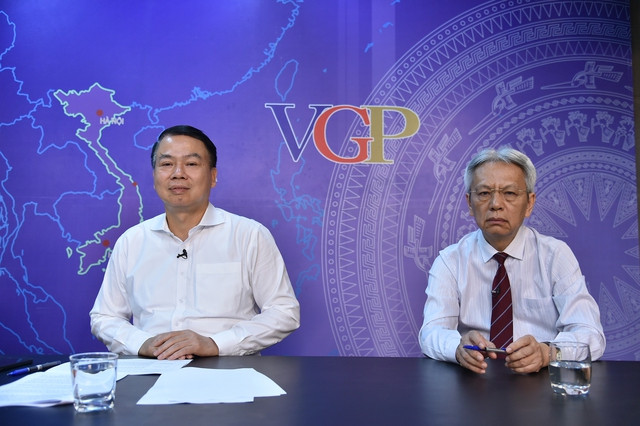
Thứ trưởng Nguyễn Đức Chi : Tiếp tục định hướng và xây dựng thể chế, có những hành động để thị trường trái phiếu hoạt động trở lại ổn định và phát triển bền vững, tôi cho rằng chúng ta còn rất nhiều việc phải làm. Tôi hoàn toàn đồng tình với TS. Vũ Minh Khương về những tiêu chuẩn của thị trường
Nghị định 65 quy định rất rõ về các tiêu chuẩn. Thứ nhất, nhà đầu tư tham gia vào thị trường phải ký cam kết là đã hiểu tất cả những vấn đề liên quan đến trái phiếu mà họ tham gia đầu tư và chấp nhận rủi ro khi quyết định đầu tư.
Bên cạnh đó, Nghị định 65 cũng quy định định kỳ 6 tháng, doanh nghiệp phát hành trái phiếu phải có báo cáo được kiểm toán bởi một cơ quan kiểm toán độc lập, xác nhận tiền thu được từ trái phiếu sử dụng vào mục đích đã công bố với nhà đầu tư. Đây là quy định phù hợp, rõ ràng, đảm bảo sự minh bạch của doanh nghiệp phát hành với cơ quan quản lý Nhà nước và các nhà đầu tư.
Ngoài ra, các tiêu chuẩn của trái phiếu, các hình thức có thể phát hành như bằng bảo lãnh thanh toán, bảo lãnh từ bên thứ ba, bằng tài sản đảm bảo đã được quy định rõ từ Nghị định 153.
Về xác lập hệ số tín nhiệm, trong Nghị định 65 nêu rõ doanh nghiệp phát hành phải có đánh giá hệ số tín nhiệm từ một bên cung cấp dịch vụ này. Tuy nhiên, đúng như ông Cường nói, đánh giá về tình hình cụ thể cung cấp dịch này của Việt Nam còn nhiều hạn chế. Vì vậy, Nghị định 08 đã tạm thời cho ngưng quy định này trước mắt là đến 31/12/2023.
Có thể nói, phản ứng chính sách và quyết đáp của Chính phủ rất linh hoạt, trên cơ sở căn cứ vào tính khoa học, nguyên tắc, quy chuẩn và yêu cầu thực tiễn hiện nay, để đưa ra các quy định nêu trên.
Tôi xin chia sẻ là từ khi Nghị định 08 được ban hành ngày 5/3/2023, chúng ta đã có 15 doanh nghiệp phát hành được khối lượng là 26,4 nghìn tỷ trái phiếu doanh nghiệp ra thị trường. Trong khi giai đoạn trước đó, cuối năm 2022 và 2 tháng đầu năm 2023, hầu như không có doanh nghiệp nào phát hành được trái phiếu ra thị trường.
Đây là dấu hiệu tích cực cho thấy tác động chính sách giúp các doanh nghiệp và các nhà đầu tư có niềm tin và bắt đầu quay trở lại thị trường.
Ở một khía cạnh khác, sau khi Nghị định 08 ra đời, nhiều doanh nghiệp đã đàm phán thành công với các nhà đầu tư trong xử lý vướng mắc về quá trình thanh khoản, dòng tiền khi trái phiếu đến hạn. Theo báo cáo của Sở Giao dịch chứng khoán, có 16 doanh nghiệp đàm phán thành công để giải quyết khối lượng trái phiếu gần 8 nghìn tỷ đồng (7,9 nghìn tỷ đồng). Tôi có thể kể ra một số doanh nghiệp phát hành lớn như: Tập đoàn địa ốc Bulova, Công ty cổ phần Hoàng Anh Gia Lai, Công ty cổ phần Hưng Thịnh Land…
Nhờ có quy định mới của Chính phủ, các doanh nghiệp cùng với nhà đầu tư đã thực hiện được các phần việc như đàm phán, gia hạn, chuyển đổi thành tài sản,… thành công.
Một điểm nữa tôi muốn nhắc đến là Nghị định 08 cho phép ngưng thi hành điều kiện mới về các nhà đầu tư chuyên nghiệp và xếp hạng trái phiếu hết năm 2023. Quy định này được đánh giá là giúp cho doanh nghiệp, nhà đầu tư đáp ứng các điều kiện, quy chuẩn của Nghị định 65. Nếu không, chúng ta áp dụng ngay thì gây sốc, giật cục, có khả năng không những khiến thị trường không tốt lên mà còn xấu đi.
Sau khi có Nghị định 65 và Nghị định 98, nhận thức, ý thức của các chủ thể tham gia thị trường tốt lên rất nhiều, hiểu được trách nhiệm và nghĩa vụ của mình khi tham gia thị trường hơn. Các tổ chức phát hành, cung cấp dịch vụ chấp hành nghiêm túc chế độ cung cấp thông tin cho các nhà đầu tư.
Như vậy, với những quy định mới của Chính phủ, chúng ta đã đạt kết quả bước đầu rất tích cực. Trong thời gian tới, thị trường sẽ có những điều chỉnh và bắt đầu đi lên một cách bền vững.
TS. Nguyễn Sĩ Dũng : Có lẽ chúng ta kết thúc cuộc toạ đàm hôm nay với một điểm tích cực là thị trường trái phiếu doanh nghiệp đang phục hồi, có nền tảng bền vững để phát triển. Trong thời lượng gần 120 phút của chương trình, chúng ta đã trao đổi nội dụng về ổn định kinh tế vĩ mô và phát triển thị trường trái phiếu doanh nghiệp. Các diễn giả đều khẳng định mạch lạc và chắc chắn là chúng ta đã giữ được ổn định kinh tế vĩ mô – thành tựu lớn nhất, đáng ghi nhận nhất, nền tảng quan trọng nhất để phát triển kinh tế. Các chuyên gia đã so sánh trong bối cảnh chung của thế giới, thành tựu chúng ta đạt được là tích cực và chúng ta cần truyền thông đúng đắn để thấy hết những nỗ lực, cố gắng để củng cố niềm tin trong doanh nghiệp.
Đặc biệt, chúng ta đã bàn về khó khăn của thị trường chứng khoán với những giải pháp rất kịp thời của Chính phủ. Nghị định 65 tạo nền tảng cơ bản để phát triển thị trường trái phiếu lành mạnh, phát triển theo chuẩn chung của quốc tế. Cùng với đó là phản ứng chính sách kịp thời, uyển chuyển của Nghị định 08. Những phản ứng nhanh nhậy đó đã bắt đầu đưa đến kết quả rõ ràng như 26,4 nghìn tỷ trái phiếu doanh nghiệp đã được phát hành.
(Theo Báo Điện tử Chính phủ)
Source



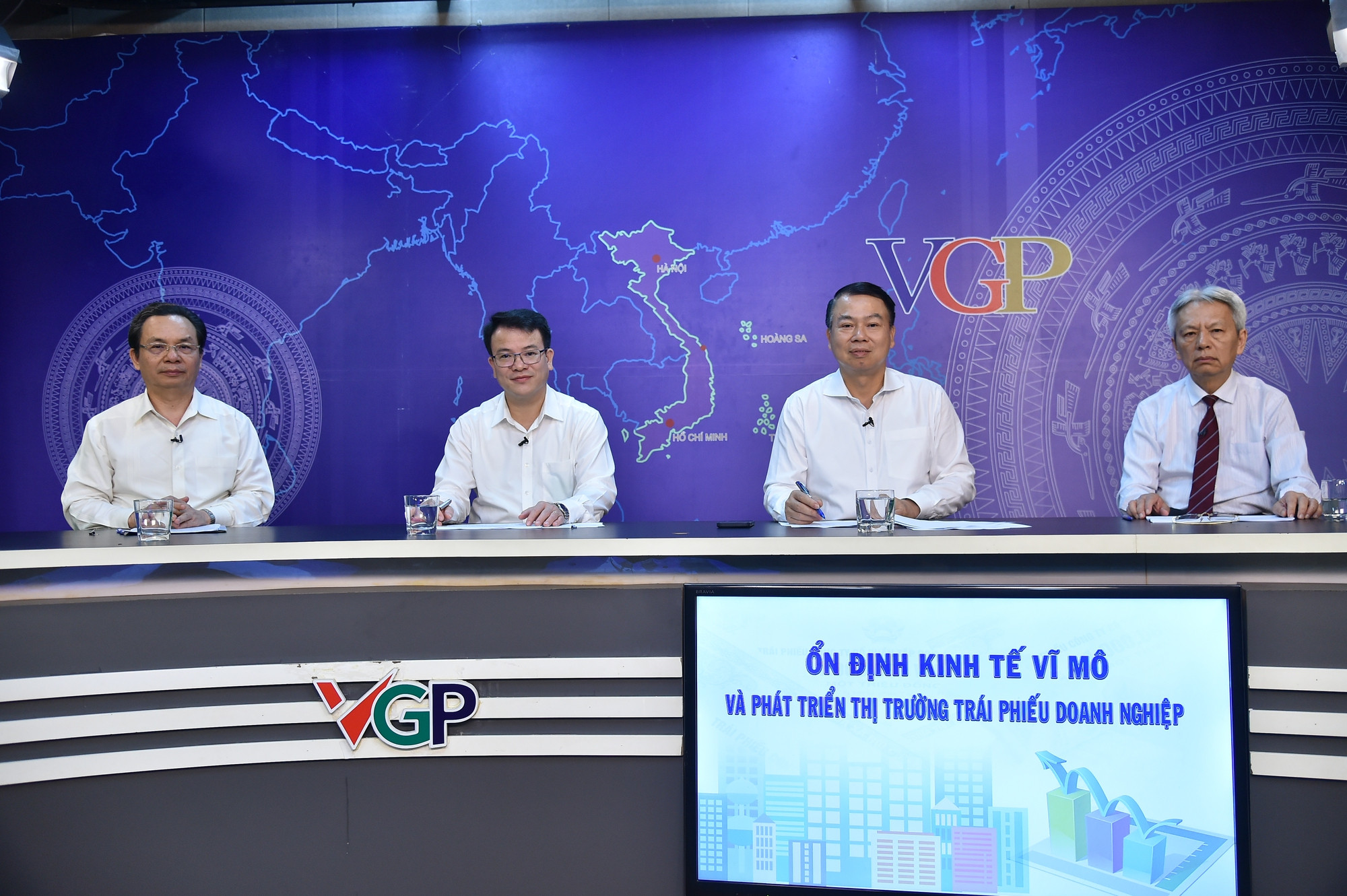



![[Photo] Prime Minister Pham Minh Chinh receives United Nations Secretary-General Antonio Guterres](https://vphoto.vietnam.vn/thumb/1200x675/vietnam/resource/IMAGE/2025/10/25/1761390212729_dsc-1484-jpg.webp)
![[Photo] National Assembly Chairman Tran Thanh Man receives United Nations Secretary-General Antonio Guterres](https://vphoto.vietnam.vn/thumb/1200x675/vietnam/resource/IMAGE/2025/10/25/1761390815792_ctqh-jpg.webp)
![[Photo] Prime Minister Pham Minh Chinh and United Nations Secretary-General Antonio Guterres attend the Press Conference of the Hanoi Convention Signing Ceremony](https://vphoto.vietnam.vn/thumb/1200x675/vietnam/resource/IMAGE/2025/10/25/1761391413866_conguoctt-jpg.webp)


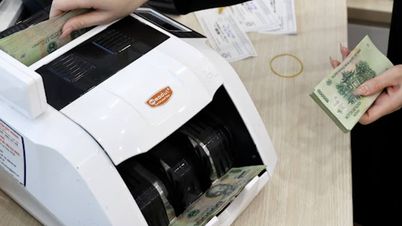

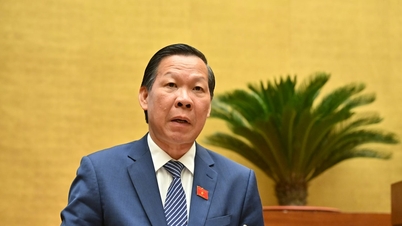

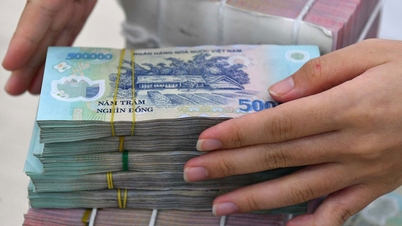
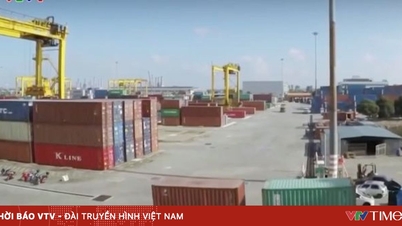





















![[Photo] General Secretary To Lam meets with General Secretary and President of Laos Thongloun Sisoulith](https://vphoto.vietnam.vn/thumb/1200x675/vietnam/resource/IMAGE/2025/10/25/1761380913135_a1-bnd-4751-1374-7632-jpg.webp)















































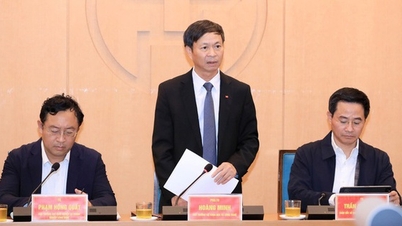

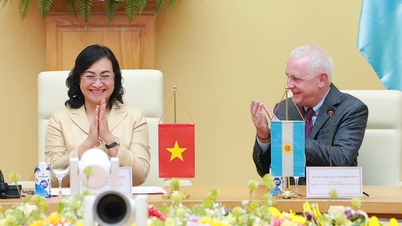























Comment (0)